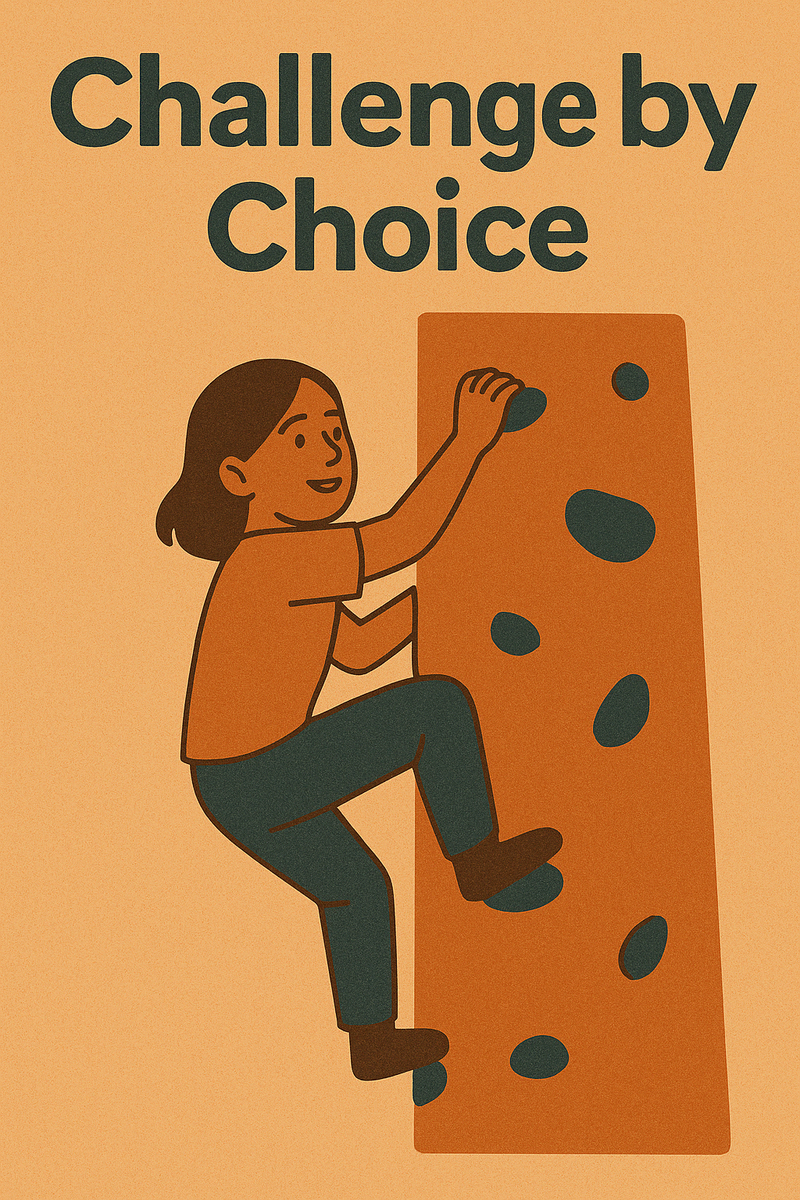Learning About Learning:

Number 2 in a Series: Building Learner Resilience
Support Their Stress by Letting Them Experience Manageable Stress
Building emotional strength through safe, supported challenges
As adults, we often work hard to shield children from stress. It’s an understandable response—after all, stress is uncomfortable. But not all stress is harmful. In fact, some stress is not only safe but essential for developing emotional strength and resilience.
The key lies in the type of stress children experience. In developmental science, stress is typically divided into three categories:
- Positive stress – short-lived, moderate challenges like starting a new class or performing in front of others. These build coping skills.
- Tolerable stress – more serious, but temporary stressors like the death of a pet or parental separation, which supportive adults can buffer.
- Toxic stress – prolonged, intense adversity without adequate adult support, which can negatively affect brain development.
We want to encourage the first two types in schools and homes, especially manageable, positive stress. This kind of challenge builds resilience like a muscle. Without exposure to it, children may struggle to cope with even small setbacks later in life.
Why manageable stress matters
A 2015 report from Harvard University’s Centre on the Developing Child explains that:
“Children who experience manageable levels of adversity with adult support can develop a sense of mastery, self-regulation, and self-efficacy.”
In other words, it’s not the absence of stress that promotes well-being—it’s the ability to navigate stress with the help of warm, supportive relationships. At Western Heights School, we believe in supporting stress, not removing it altogether.
The downside of overprotection
When we attempt to remove all sources of challenge or distress from our children’s lives, we risk a phenomenon known as “learned helplessness.” This is when a child begins to believe they are incapable of solving problems or managing their own feelings.
As psychologist Michael Ungar, a global expert on resilience, explains:
“The more we bubble-wrap our children, the more we reduce their exposure to experiences that help them become competent and confident.”
In contrast, a child who has been safely supported through difficult moments learns not to fear discomfort but to face it with the right tools and trust.
Practical ways to support manageable stress
Here are five ways we can support tamariki as they experience manageable stress at home and in the classroom:
Normalise feelings of discomfort.
Let children know that feeling nervous, frustrated, or unsure is okay. These feelings are not signs of failure; they are part of learning and growing.
Coach self-regulation strategies.
Teach and model breathing exercises, counting to ten, journaling, or using visualisation techniques to calm the nervous system. Over time, these tools become second nature.
Offer co-regulation, not control.
Rather than taking over a situation (such as resolving a friendship issue), sit with the child, help them talk through their feelings, and empower them to create a plan.
Use reflective questioning.
Ask: “What did you find hard?” “What helped?” “What could you try next time?” This strengthens metacognition and gives children ownership of their problem-solving process.
Celebrate progress, not perfection.
When children overcome something that once caused anxiety—whether it’s a maths test or speaking in assembly—celebrate the courage it took to get there.
Letting stress grow strong hearts
In a world that is unpredictable and at times overwhelming, our job is not to create a perfectly smooth path, but to walk beside our children as they learn how to climb life’s hills. By letting them experience manageable stress, we help them develop hearts that are strong, flexible, and brave.
Just as a sapling grows sturdier by withstanding wind, our tamariki develop emotional durability when they are exposed to challenge in supportive environments. Stress, in this case, isn’t something to fear. It’s something to steward wisely.
Final Thought
At Western Heights, we recognise that stress isn’t inherently bad—it’s a natural part of learning and growing. What matters is how it’s experienced and who is there to guide them through. By helping our learners face manageable stress with courage and calm, we’re teaching them one of life’s most powerful lessons:
“You are capable. You can do hard things. And you are never alone.”

